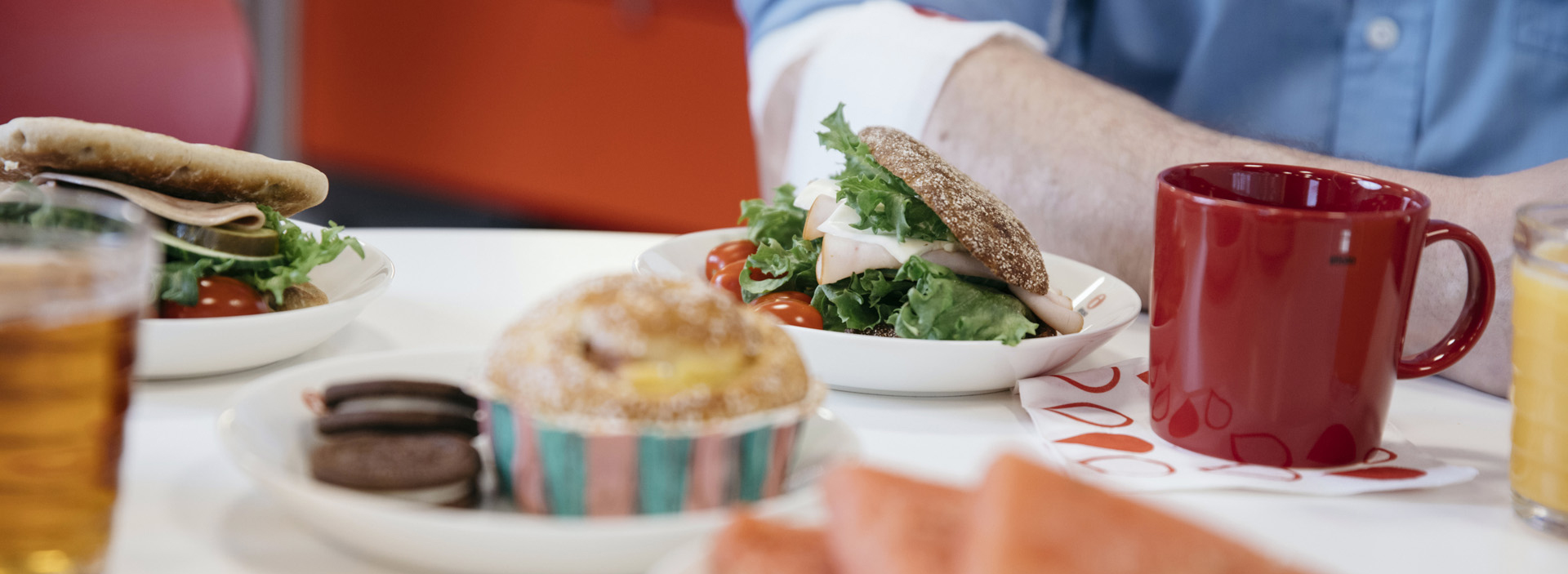After donating
If, after donating blood, you become ill or realise you have forgotten to inform us of anything that might affect the safety of the blood you have donated, please contact the donation location immediately or call the free donor info number, tel. +358 (0)800 0 5801.

Instructions for blood donors after donating
- Avoid prolonged standing, as it can cause you to feel dizzy and increase the risk of fainting.
- Hold the adhesive plaster in place for up to two hours. It is a good idea to keep the dressing on the inside of your elbow in place for longer.
- Avoid heavy physical exertion, saunas, and all excessive sweating on the day of donation to ensure that your fluid deficiency is rectified as quickly as possible.
- Avoid consuming alcohol on the day of donation.
- Do not strain the arm from which the blood was drawn by lifting or carrying heavy objects on the donation day. This will reduce the risk of bruising.
As long as you remember to drink more fluids than usual, the fluid you have lost during donation will be replaced in approximately 24 hours. Drinking enough liquids is particularly important in the summer.
We distribute iron tablets to women under the age of 50, as well as to everyone who donates blood frequently. Please take all the tablets given to you!
If you develop bruises in the injection site
- Use local cold treatment on the bruised area a few times during the first 24 hours (such as a cold pack or cold gel).
- If necessary, take paracetamol for the pain during the first day, after which you can also take NSAIDs (such as ibuprofen).
- If necessary, the healing of the bruise can be accelerated by using a bruise cream obtained from the pharmacy.
All blood donors are insured against any adverse effects caused by blood donation. Contact the Blood Service for more information.
Call us if you become unwell
Please call us if, after donating blood:
- you become unwell within a week (fever, upset stomach, etc.),
- you are diagnosed with a serious illness (such as cancer) within a month of donating blood, or
- you find out that you or your sexual partner has been infected with a blood-borne disease (such as HIV or hepatitis B or C).
Free donor info number: tel. +358 800 0 5801 (on weekdays from 8 a.m. to 5 p.m.).
A warm thank you for donating blood!